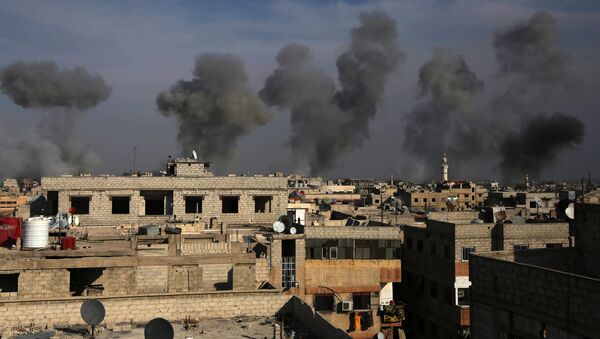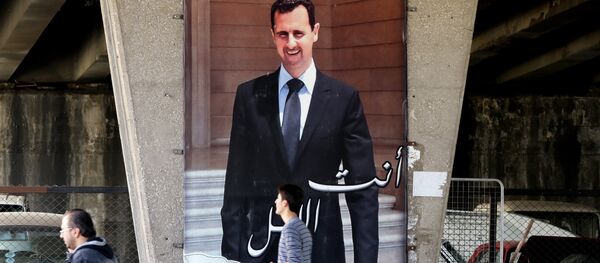Earlier, Bashar Jaafari, Syria's envoy to the UN, told Sputnik in an exclusive interview that the French intelligence service was involved in the attack that left more than 1,300 civilians killed. The incident, he explained, was orchestrated to prevent a UN inspector from going to Aleppo and investigating another chemical assault blamed on rebels.
"These are Syrian allegations and obviously there is no independent corroboration of them. But such things are known to have happened in the past. And if one looks at the actual facts of what happened in August 2013, many people suspected that something like that had been happening for a very long time," Mercouris said.
The analyst further noted that "it does look like the operation may have been carried out by the Syrian rebels and it is possible of course that a foreign intelligence agency was involved. There certainly have been precedents for such things."
The sarin gas attack took place in Ghouta, a suburb of Damascus, on August 21, 2013. Western leaders and radical groups trying to depose Syrian President Bashar al-Assad blamed the attack on government forces, without providing evidence. Damascus has always denied these allegations.
Mercouris pointed out the device used in the attack appears to tacitly prove the Syrian Army did not gas civilians.
"It is largely accepted by those who know about these things that this was an improvised device, probably not intended for use in sarin attacks. The evidence such as it is suggests that it could not have been launched from the Syrian military base," he said. "This seems to redirect the evidence towards the rebels."
If true, then the question is how the rebels acquired the gas. Mercouris offered two possible options:
"It might have been a foreign intelligence agency. The Syrians say it was the French. Others have suggested Turkish intelligence. And of course it's always possible that it was the rebels themselves who do have industrial facilities under their control which might have produced this material."

"I think this has been one of the major problems of the whole investigation," he said, adding that US reports show that their inspectors "make certain findings and then refuse to follow those findings through to their conclusion."
The primary reason, he suggested, might be the following: they are obviously concerned that these findings "would lead in a certain direction where they don't want to go."

Mercouris further said that we might learn the truth about the Ghouta chemical attack in the future when historians study the archives or someone familiar with the situation comes forward.




